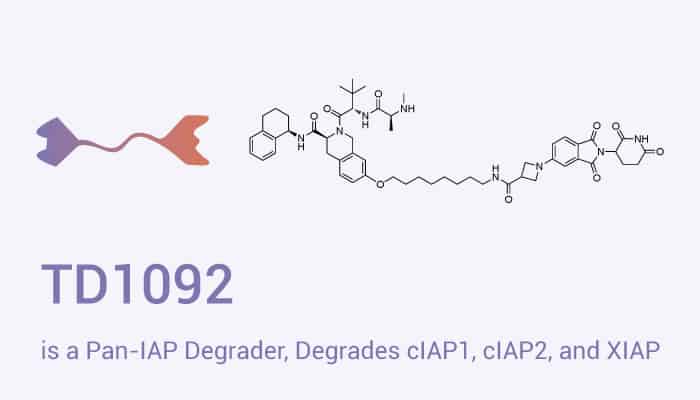Apoptosis inhibitor proteins (IAP) represent a group of caspases and negative regulators of cell death. Particularly, the IAP protein family prevents cell death by binding to and inhibiting active caspases and is negatively regulated by IAP-binding proteins. In addition to cell death, IAP also acts as an innate immune sensor and regulates multiple pathways, such as autophagy and cell division. The unique function of IAP also stems from its unique cell location, cell type, and tissue-specific expression mode. Interestingly, the main functional unit in IAP is the BIR (or baculovirus IAP repeat sequence) domain. Most IAPs have multiple BIR domains that mediate specialized functions. There are eight human IAPs, including XIAP, c-IAP, c-IAP2, and survival proteins. They all showed anti-apoptotic activity in cell culture.
Obviously, IAP protein family members are often overexpressed in cancer, which leads to tumor cell survival, chemotherapy resistance, disease progression, and poor prognosis. Meanwhile, IAP controls Ub-dependent signaling events. These signal events regulate the activation of NF-κB and MAPK pathways drives the expression of genes important for inflammation, immunity and cell migration, and cell survival. Nonetheless, IAP plays a role as E3 Ub ligase and mediates the transfer of Ub from E2 to the target substrate. Therefore, it is a promising strategy to break the combination of IAP and its functional partners. Additionally, this can restore the apoptotic response to pro-apoptotic stimuli, especially those introduced by standard cancer therapies. Here, we will introduce a pan-IAP degrader, TD1092.
TD1092 is a pan-IAP degrader, degrades cIAP1, cIAP2, and XIAP.

Above all, TD1092 promotes cancer cell death via caspase activation. Moreover, TD1092 inhibits the NF-κB pathway and epithelial-mesenchymal transition (EMT).
Next in importance, TD1092 potently degrades cIAP1, cIAP2, and XIAP in a dose- and time-dependent manner. TD-1092 promotes cancer cell death through caspase activation in MCF-7 cells. Importantly, TD-1092 inhibits TNFα-induced NF-κB signaling and epithelial-mesenchymal transition (EMT). TD-1092 inhibits MCF-7 cell growth with an IG50 value of 0.395 μM.
All in all, TD1092 is a pan-IAP degrader, degrades cIAP1, cIAP2, and XIAP.
References:
Park S, et al. Eur J Med Chem. 2023 Jan 5;245(Pt 2):114910.